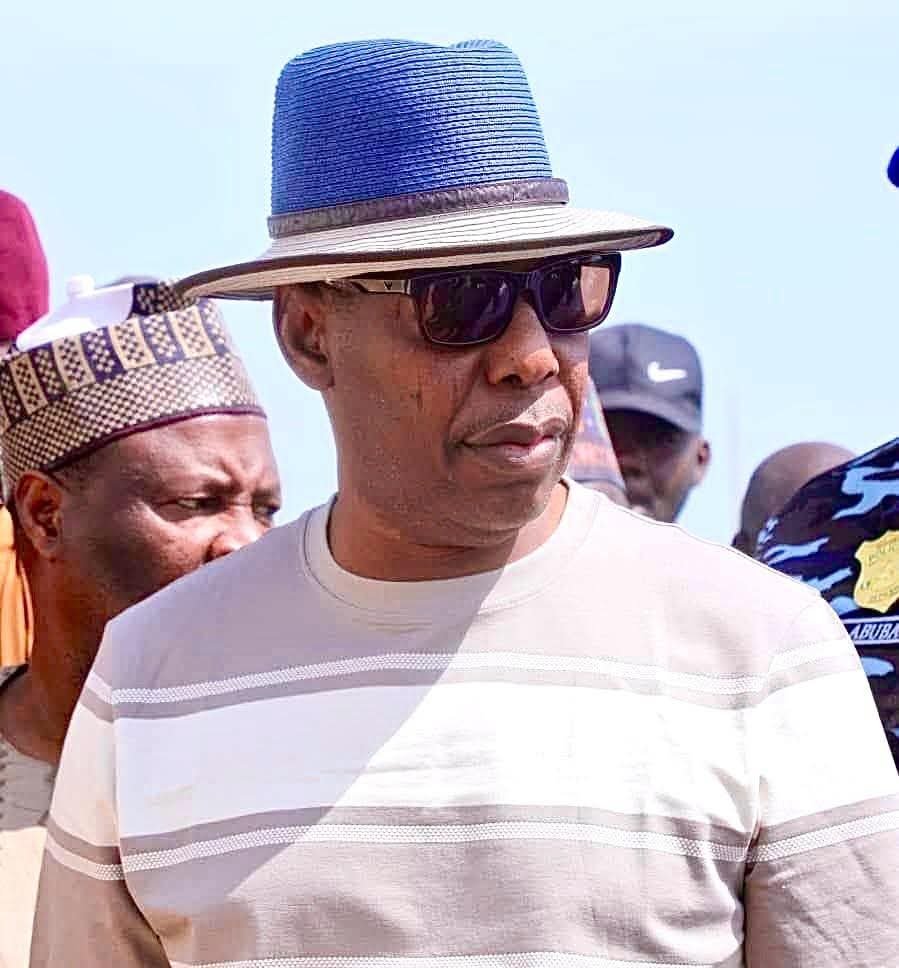Benue’s New IDP Policy: A Roadmap of Hope, Dignity For Displaced Persons
Bridget Tikyaa

One of the key campaign pledges of Rev. Father Hyacinth Iormem Alia on his way to becoming the Governor of Benue State is addressing the security challenges of the state and getting internally displaced persons back on their feet and to their ancestral homes.
This promise was anchored on the realities of the debilitating conditions of the displaced persons who have been battered by insecurity, harangued into a life of penury and abject poverty. A people whose life was turned upside down by displacement, the horrors of ‘war’ and the dejected condition of not knowing where to start, and even how to start life all over again.
According to an International Organization for Migration (IOM) report, the population of IDPs affected by attacks by armed criminals, including herdsmen and local militias, has hit over 500,182 in the state. In June 2025, the Benue State Emergency Management Agency (BSEMA) announced the registration of 18,592 additional IDPs in Gwer West Local Government Area. So far, however, records indicate that over 200,000 IDPs have returned home following initiatives of the state government.
It is therefore a huge statement, when on September 30, 2025, the Benue State IDPs Policy was unveiled by the Governor, which is a fulfilment of a pledge he made to take the IDPs home, and address the humanitarian challenges confronting the state’s displaced population.
The Policy was developed by Benue State Government in partnership with Save the Children International. It is building on Governor Hyacinth Alia’s efforts, which include the launch of a programme aimed at fostering the safe return of the IDPs to their ancestral homes through a three-pronged approach of Return, Integration, and Resettlement.
The governor has also been providing IDPs access to land, subsidized inputs, and improved seedlings to boost their agricultural productivity. He had also initiated the formation of 210 Farmers Cooperatives across all camps in the state, benefiting over 4,200 IDPs.
The government is also constructing 3,000 housing units to shelter at least 16,000 IDPs in the state and completed a Transit Camp in Guma LGA, which houses over 4,000 IDPs in dignified emergency shelters.
The government has also initiated economic empowerment programmes for the IDPs aimed at providing them guaranteed market access with government-controlled prices and integration into the larger value chain. The Benue Investment and Property Company (BIPC) has also initiated entrepreneurship programmes designed to empower IDPs and refugees, aiming to create over 50,000 direct jobs and impact more than 80,000 families.
The governor has also initiated peacebuilding and community dialogues to foster peace and land donations from traditional rulers for farming and relocation. All these initiatives are part of the governor’s broader efforts to restore normalcy to conflict-affected areas and improve the living conditions of displaced persons across Benue State.
The launch of the IDP Policy anchored on constitutional obligations and international human rights frameworks is therefore a new commitment to getting the job done through collective action involving government, partners, and displaced communities.
The Principal Special Assistant to the Governor on Legal Matters, Barr. Seember Wayo said the new policy is a social contract, a roadmap of hope anchored on constitutional obligations and relevant international human rights frameworks such as the UN Guiding Principles on Internal Displacement and the Kampala Convention.
“For decades, the people of Benue have borne the brunt of violent conflicts, farmer–herder crises, natural disasters, and other displacements that have torn families apart and placed immense pressure on host communities,” she said. “The launch of this policy is not just a formal event, but a profound statement of our government’s determination to protect the dignity, rights, and future of every displaced Benue citizen.”
The official unveiling of the policy by Governor Alia, represented by his Deputy, Barr. Dr. Sam Ode reaffirmed the administration’s commitment to enabling displaced families to return home, rebuild their lives, and thrive. However, to achieve this, there is the compelling need for ministries, agencies, civil society, private sector actors, and community leaders to work together through the Ministry of Humanitarian Affairs, the Durable Solutions Taskforce, and the SDGs Directorate. This is important in order to move the policy beyond words into effective action to restore dignity and livelihoods for thousands of displaced persons.
The launch of the policy should mark a shift from policy intent to practical action, which according to Barr Wayo “calls on all of us — government, partners, communities, and citizens — to turn compassion into coordinated action, ensuring displacement in Benue never becomes a permanent condition, but a challenge we are united in overcoming.”
This much was also reiterated by Save the Children International Deputy Country Director, Jane Mutua, and representatives of other humanitarian agencies, civil societies, and displaced communities at the event. They all agreed that the Internally Displaced Persons policy is a major step in addressing humanitarian challenges confronting displaced populations in the state.
Mutua in particular said government agencies and stakeholders must ensure that the policy moves beyond paper into action through full implementation, proper funding, and consistent monitoring, so as to translate the policy into tangible results that will directly impact displaced children and families.
On their part,the Commissioner for Humanitarian Affairs and Disaster Management, Aondowase Kunde, and the Executive Secretary of the Benue State Emergency Management Agency (BSEMA), Dr. James Iorpuu, also commended Save the Children International for its consistent support. They stressed the need for stronger collaboration between government and development partners to restore dignity and hope to thousands of IDPs across the state
As the government of Benue State executes this social contract that places displaced persons at the centre of all interventions, stakeholders and all citizens must forge stronger collaboration to restore dignity and hope to thousands of IDPs across the state.
Bridget Tikyaa is the Principal Special Assistant to the Governor on Media Publicity and Communication Strategy





